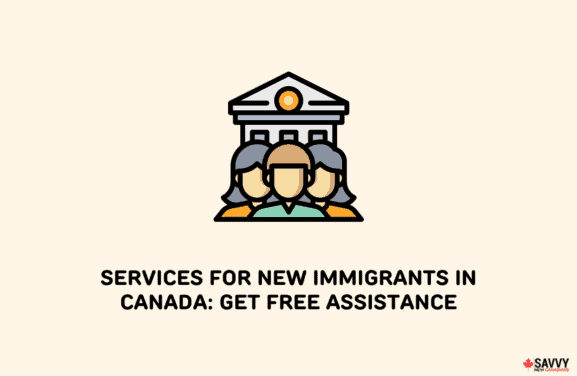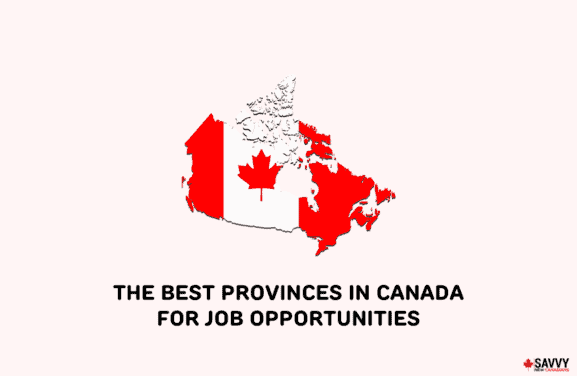Ontario is Canada’s most populous province, with an estimated population of over 15.6 million people, as per Statistics Canada. As of October 1, 2023, the minimum wage in the province is $16.55.
As a worker in Ontario, you are legally entitled to be paid a minimum wage by your employer. This wage rate may vary depending on whether you are a student, liquor server, homeworker, commissioned worker, or hunting, fishing, or wilderness guide.
The rules regarding minimum wage rates in Canada are generally covered in the labour laws or Employment Standards Act of respective provinces and territories.
Minimum Wage in Ontario (Current Rates)
| Minimum Wage Group | Minimum Wage Rate (Oct 1, 2022 – Sept 30, 2023) | Minimum Wage Rate (Oct 1, 2023 – Sept 30, 2024) |
| General minimum wage | $15.50 per hour | $16.55 per hour |
| Student minimum wage | $14.60 per hour | $15.60 per hour |
| Liquor servers minimum wage | $15.50 per hour | $16.55 per hour |
| Hunting, fishing, and wilderness guides | $77.60 rate for working less than 5 consecutive hours in a day. $155.25 for working 5 or more hours in a day whether or not the hours are consecutive | $82.85 rate for working less than 5 consecutive hours in a day. $165.75 for working 5 or more hours in a day whether or not the hours are consecutive |
| Homeworkers wage | $17.05 per hour | $18.20 per hour |
The current minimum wage in Ontario is $16.55 per hour.
The general minimum wage increased to $16.55 per hour on October 1, 2023, with an increase of $1.05.
Below is a brief history of Ontario’s minimum wage increases since 2007.
- October 1, 2023: $16.55
- October 1, 2022: $15.50
- January 1, 2021: $15.00
- October 1, 2021: $14.35
- October 1, 2020: $14.25
- October 1, 2018: $14.00
- October 1, 2017: $11.60
- October 1, 2016: $11.40
- October 1, 2015: $11.25
- June 1, 2014: $11.00
- March 31, 2010: $10.25
- March 31, 2009: $9.50
- March 31, 2008: $8.75
- February 1, 2007: $8.00
The existence of a minimum wage in Ontario does not mean your earning ability is limited to $16.55 per hour. Instead, it highlights how much you can expect to be paid at a minimum as a general worker.
Increases to the minimum wage rate are tied to the Ontario Consumer Price Index, which is a measure of the average changes in the price of consumer goods.
Related: Work From Home Jobs in Canada.
Ontario Minimum Wage for Students
The current minimum wage for students in Ontario is $15.60 per hour. This rate is in effect from October 1, 2023, to September 30, 2024.
This minimum student wage applies to students under 18 years of age who work 28 hours or less per week during the school year.
Related: Online Jobs for Students.
Minimum Wage Exemptions and Rules in Ontario
Some jobs in Ontario are not subject to the general minimum wage rate, including:
Hunting and Fishing Guides: Guides who take clients out on hunting and fishing trips are paid a minimum wage based on blocks of time.
The minimum pay for work that takes less than 5 consecutive hours in a day is $82.85.
For 5 or more working hours in a day, the minimum pay is $165.75, and the hours do not need to be consecutive.
Wilderness Guides: Outdoor guides who work in a wilderness environment earn the same minimum wage rate as hunting and fishing guides.
- Less than 5 consecutive hours/day: $82.85
- 5 hours or more/day: $165.75
Homeworkers: These are employees “who do paid work out of their own homes for an employer.” They are eligible for a $18.20 per hour minimum wage rate. This rate applies even if the employer is being paid based on a piece-work rate, i.e. based on the amount of work completed.
Related: Ontario Income Tax Bracket.
Other Employment Standards Rules
Employees who are paid by commissions must earn at least the general minimum wage for each hour worked, i.e. $16.55 per hour. That said, some commissioned employees are not entitled to the minimum wage, such as commissioned travelling salespersons who do not work a specific route.
When an employee who normally works more than 3 hours a day is required to work for less than 3 hours, they must receive a pay that is the higher of:
- 3 hours at their regular rate of pay, or
- The wage earned for hours worked, plus regular wages for the time remaining to complete a 3-hour work day.
This 3-hour rule may not apply if the cause of work disruption is outside of the employer’s control.
When an employee receives meals (board) and lodging (room) as part of their work, an employer can include the amounts when calculating their pay.
The maximum amounts that can be deducted are:
- Room only (private): $31.70/week
- Meals only: $53.55/week
- Room only (non-private): $0
- Room (private) and meals: $85.25/week
- Room (non-private) and meals: $53.55
For the cost of a room to be deducted from wages, it must meet some minimum requirements.
For more details on the employment standards in Ontario, read the Act.
Some workers and their employers are not covered by the Employment Standards Act, including police officers, politicians, federal government workers, and students in work experience programs.
Related: Free Cash Back Apps in Canada.
Ontario Minimum Wage Tax Rate
The taxation system in Canada is progressive, and this means you pay more in taxes on a higher income.
For Ontario, the tax rates for different incomes in 2023 are:
- Up to $49,231: 5.05%
- $49,231.01 – $98,463: 9.15%
- $98,463.01 – $150,000: 11.16%
- $150,000.01 – $220,000: 12.16%
- $220,000.01+ : 13.16%
In addition to provincial taxes, you also pay taxes on the federal level as follows:
- Up to $53,359: 15%
- $53,360 to $106,717: 20.50%
- $106,718 to $165,430: 26%
- $165,431 to $235,675: 29%
- $235,676 and over: 33%
Taxes are levied after taking your personal basic amounts and deductions into account. The federal basic personal in 2023 is $15,000, and the Ontario basic personal amount is $11,865.
This means that you don’t pay federal taxes on the first $15,000 you earn in 2023, and you don’t pay provincial taxes on the first $11,865 earned.
Your tax burden is further reduced following eligible deductions like RRSP and CPP contributions and tax credits such as:
- Ontario Child Care Tax Credit
- Ontario Trillion Benefit
- Ontario Senior’s Public Transit Tax Credit
- Political Contribution Tax Credit, etc.
Ontario Tax Rate Example
If your taxable income in 2023 is $35,000, your Ontario provincial tax is $35,000 × 5.05% = $1,767.50
You also pay federal taxes equivalent to $35,000 × 15% = $5,250.
Your total tax bill is $1,767.50 + $5,250 = $7,017.50 (this does not consider the basic personal amount, tax deductions, and credits).
You can file your income tax return using free tax software.
Frequently Asked Questions
Ontario’s minimum wage increased to $16.55 per hour on October 1, 2023, based on the province’s Consumer Price Index for 2022. It is expected to increase on October 1, 2024.
At $16.55/hour, you are earning, on average, $34,424 per year, which is definitely going to be challenging to make ends meet in Toronto, given the high costs of housing. That said, you could live in Toronto on minimum wage and get by.
You qualify for the maximum Low-Income Workers Tax Credit if your individual net income is $32,500 or less, and a reduced credit if your income is between $32,500 and $50,000 (individuals). Therefore, a low income in Ontario is $32,500 or lower.
If you normally work shifts that are 3 hours or more, your employer must pay you a minimum of 3 hours of regular pay if you report to work and had to work for less than 3 hours.



